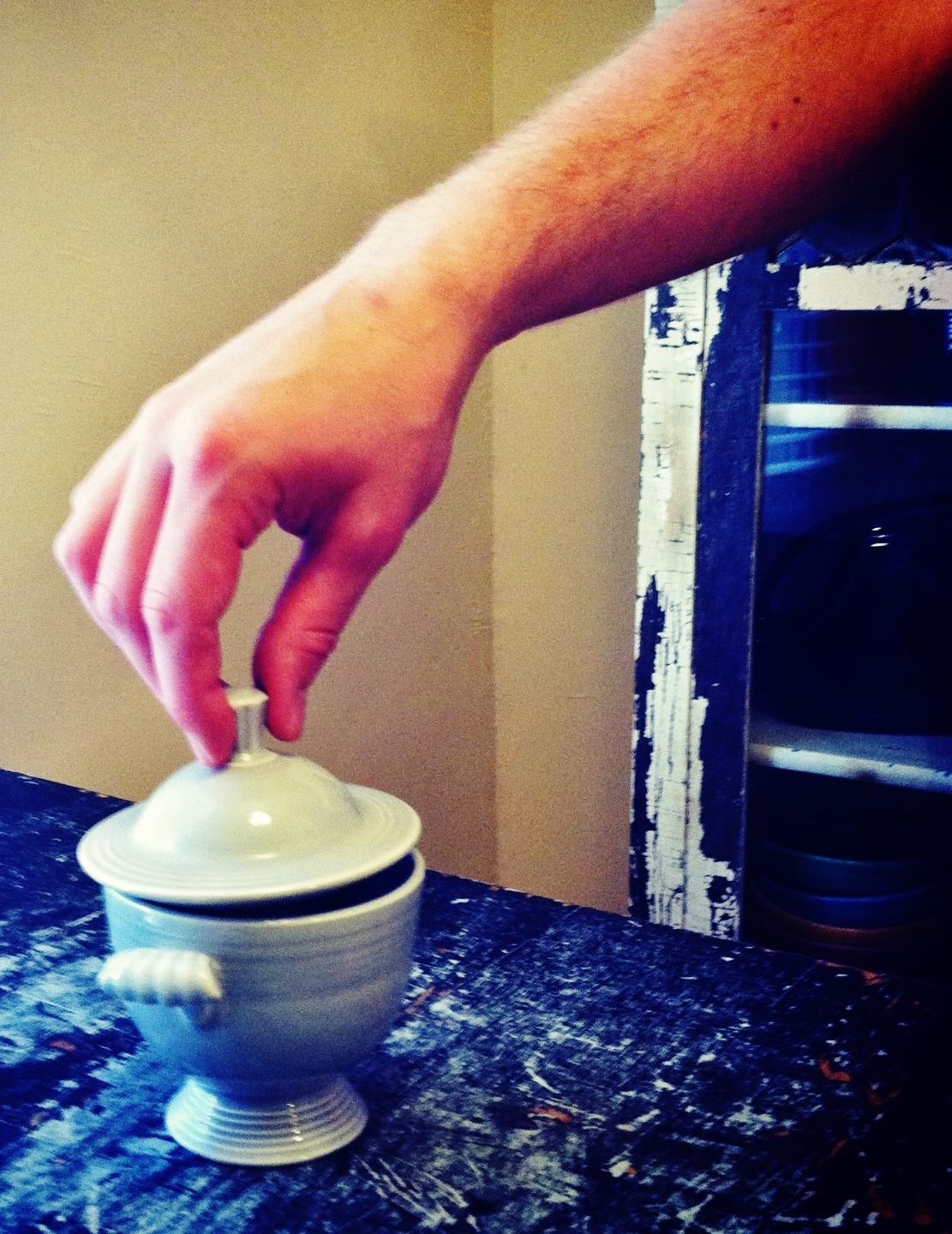A shattered Guy Fawkes mask leers out from the murky puddle; bits of paper and food wrappers bob up and down, congealing with saturated, shredded cardboard into a slimy slurry that laps at the curb. Ahead of us, a crow hops across the street, its beak protectively clutching a shimmering condom wrapper.
Toby dances and shakes in the perennial mist that blankets Seattle’s November skies, and angles for a dried patch beneath an overhang. Across the street a vacant thrift store looms quietly – the antithesis of its former thrumming self, alive and full of hipsters squealing about some vintage jorts or acid-wash jeans. But now the door fronts are laced with graffiti, and tarp housing is rigged in one of its deep entryways.
Like crumbs, makeshift signs dot the sidewalks every morning – some quoting scripture, others soliciting drugs; but most are tragically direct: “Help.”
We’re a pretty fucked up species. We see the problems plaguing us and just increase our speed, damn the torpedoes, and charge ahead – as if pure obliviousness will actually do something proactive. We choose not to act appropriately, not to help.
Every single day, I do just that. To an extent, we all do. For me, it’s become an unfortunate side-effect of living in big cities. Throw in horrible world events, and I close myself off more, assume the worst in people – only letting random moments remind me that, at a base level, plenty of people are good.
***
It’s getting close to quitting time at work, and I glance at Facebook and notice something about Paris. So, in typical techdrone fashion, I simply Google “Paris” – nothing more, just a word, and boom; there it is: world news at my fingertips. My head feels heavy, and I turn to look outside. Cars pack the bridge near my office, and the wind-tousled trees bend this way and that. Still, I have a few hours to go. I feel trapped.
On my way home, I stop to grab some groceries and movies for the weekend. We need an escape from the week, and, as guilty as I feel for thinking it, an escape from the burgeoning Paris headlines. As I pull into the lot, I notice a man I’ve seen before. He stands by holding a familiar sign, with his faithful shepherd laying on a towel a few feet away.
I come to find out his name is David, and his dog’s name is Legacy. “Legacy” is actually an acronym, most of which I forget immediately; but I do remember “love,” “goodness,” and “caring” are sprinkled in. The duo lives in a battered Ford Expedition, visible halfway down the block. Cars pass by, and I can feel people staring. But I just keep talking to David. Legacy rouses momentarily, eyes me suspiciously, and then takes a keen interest in the bag of kibble sticking out of the grocery tote.
David and I continue our chat, and we discuss white privilege, social responsibility, and animal welfare. We just talk about life. And laugh.
“People think I’m out here begging and lazy and homeless by choice. But I work, and do what I can to keep gas in that.” He points to the Expedition. “And, you know, keep Legacy here safe.”
Completely disinterested, Legacy sets to licking his privates.
“People say ‘Home is where the heart is’ and my and Legacy’s hearts are tied together, so we can never be ‘homeless’.”
We start wrapping up our conversation. David nudges the bags behind a dying shrub, and I turn to go. But he interjects one last thing.
“You know, there’re three types of people I encounter. The ones who ignore me. The ones who stare right through me. And the ones who sort of get it and actually do something decent.”
He leans and extends his hand. I extend mine. And there, in a random parking lot, we two strangers become less estranged.
I don’t lose it until I get back to the car. Raw emotion floods out, and I lean my head against the headrest. The neon Target light blazes through the mist, drawing in hoards like a bug lamp. I snuffle some more, not really knowing why or for whom I’m crying. Maybe for David. Maybe for humanity in general.
We have a long way to go as a species – to recognize that we’re all pieces in a massive puzzle, that we all fit together. That every person, every being is valuable – that together, we accomplish amazing things.
All we have to do is remember that we can – bit by bit, hand in hand.


